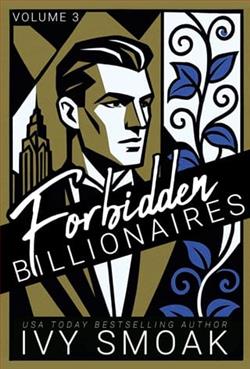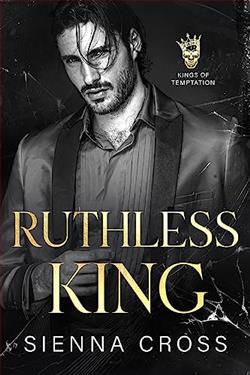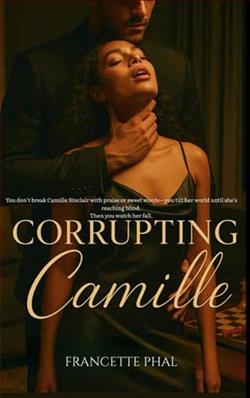Page 18 of Coram House
“I’d offer to take your jackets, but it’s so drafty in here you’ll probably be happier keeping them,” Father Aubry says with an attempt at a smile. “Please, sit.”
We take our places in two wooden chairs before the desk while he pours tea. The room fills with the smell of something herbal and overly sweet. The silence stretches and I wait to see who will fill it first. My teacup has a chipped edge that feels sharp enough to cut flesh.
Father Aubry clears his throat. “So you’re writing a book about Coram House—all the unfortunate things that happened there. I, ah, well, I know the church must seem the villain to you now, but I just hope you won’t paint us all with the same brush. There are many of those whose deepest desire was to be of service—to God and those children. The story is not unusual, I think…”
He trails off, as if he’s not sure where to go now that he’s given his talking points. Karen Lafayette’s words flash in my head.She sort of bounced when she hit the ground.
Father Aubry clears his throat again. His chair creaks like it might collapse. “Alan here tells me that you’re a very talented writer.”
I paste a smile on my face.
Father Aubry asks a few more questions about how I became a writer, where I grew up, how I like it here. With every answer, he relaxes, leaning back in his chair, nodding, probably thinking to himself that maybe we won’t have to touch on any unpleasantness after all.
Sarah Dale stands on the hill, lemonade dripping down her legs from the shattered pitcher.But Tommy, he never came back up.
“Father Aubry,” I say, interrupting a question he’s asking about my writing process. “I’ll be reviewing all the materials related to the case and the history of Coram House. Everything Mr. Stedsan has shared, documents from law enforcement, and any additional historical documents I can find. I’ll also be speaking to members of the community.”
He sits up straighter, clears his throat. “Yes, of course. Yes.”
“I know this kind of reckoning can be very uncomfortable, so I want to assure you I’ll do my best to be respectful.”
It’s half true. I plan to be very respectful of my interview subjects. But I can’t say I care about the church. From the corner of my eye, I see Stedsan give a tiny nod.Good job, kid.I ignore him.
“Anyhow,” I go on, warming up to the finale, “I want to assure you that I have no interest in sensationalizing anything.”
The story doesn’t need my help. There. Olive branch extended.
“Oh, yes, of course.” Father Aubry beams. “Well, I expected that Alan knew what he was doing when he hired you. So I was never worried, never, but it’s always nice to hear it from the source—as it is. The church is reckoning with its own history, you know, so I want to be helpful however I can.”
The smile curdles on my face, but he doesn’t seem to notice.
“What I’m really hoping for is any additional records or photos you might have, especially from the fifties on.”
Father Aubry’s face falls. “There was a fire at the House years ago. Faulty wiring. Most of those records were destroyed.”
Disappointment is stones in my pocket, a physical weight.
“I’m so sorry.” Father Aubry wrings his hands like he set the fire himself and is so very sorry about it.
I force myself to shrug.These things happen. “Perhaps you could tell me a bit more about the children who died while under your care?”
He makes a choking sound. “I— My care?”
“The church’s care, I mean, of course.”
He stares at me and then back to Stedsan, who’s gone very still beside me.
“Much of the sexual and daily abuse is well documented,” I continue, parroting Stedsan’s words, “but I’m trying to get a better grasp on the more extreme cases. Specifically, a few incidents involving Sister Cecile. You may remember the ones I’m referring to.”
At her name, Father Aubry stiffens. His eyes go to the window, as if looking for an exit.All right, let me jog your memory.
“There was an incident involving a boy named Tommy. He drowned while under the care of Sister Cecile. And another. A girl who was pushed out the window, again by Sister Cecile.”
“Nothing was ever proven,” he mumbles. But at the look on my face, he raises his hands. “Not nothing,” he says quickly, “I’m not denying certain facts that came to light. I just mean about the incident you’re referring to. The boy—”
“Tommy,” I say. “His name was Tommy.”
But he goes on as if he didn’t hear me. “And the other one. The girl and the window. Really—that one was very far-fetched. I mean, you know.”















